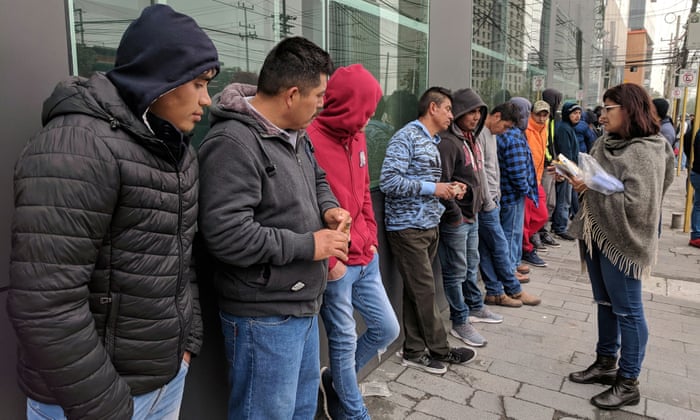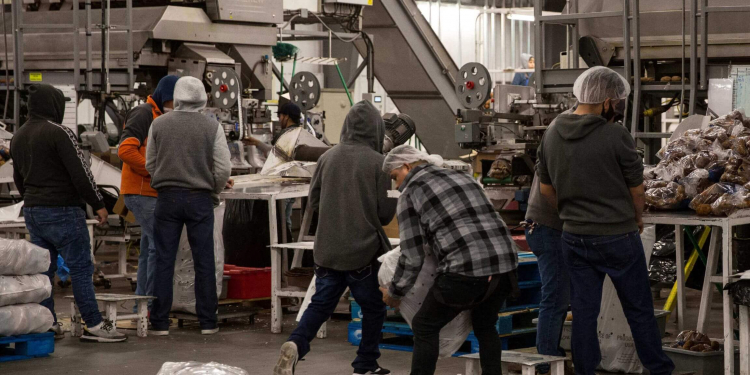Train wreck ahead for many U.S farmers? A travel ban on South African guest workers, as currently set in place by executive order, could be devastating for U.S. farming operations. Inescapable labor realities bite hard: Without adequate H-2A agriculture employees at planting and beyond, some U.S. farmers face a crippling financial blow in 2021.

On Jan. 25, President Biden announced the Coronavirus-related suspension of entry to most non-U.S. citizens from Brazil, the United Kingdom, the Republic of Ireland, much of Europe—and significantly for the agriculture industry, the Republic of South Africa. Boiled down, South African citizens play a vital role on U.S. farmland, and the possibility of their absence is of extreme concern to American growers. Hyperbole aside, a farm is only as good as its workforce, and the prospect of having the plug pulled unexpectedly on South African labor so close to the opening of 2021 field work has many farmers pushing the alarm button.
Make or Break
“There is no exaggeration when I say this could be a disaster for some guys,” says producer Adron Belk. Straddling the line of Bolivar and Sunflower counties in the Mississippi Delta, Belk, 31, grows 4,000 acres of corn and soybeans, and relies on a five to eight-man crew of South African help.
“There are so many farmers that depend on H-2A workers to plant, spray, irrigate and harvest,” he adds. “In the Delta and Mid-South, if South Africans aren’t allowed to come, there are some farms where the job can’t get done. There are some farmers that will literally not being able to find any workers.”
Roughly 270,000 individuals, typically on 10-month stays, make up the H-2A agricultural workforce, and roughly 5,000 are from South Africa. With fieldwork roughly two weeks around the corner for many growers, the prospect of losing labor looms large. Brad Doyle, northeast Arkansas grower and manager of Eagle Seeds, as well as vice-president of the American Soybean Association, doesn’t mince words, and echoes Belk. “There are guys almost ready for field preparation, and if they lose their workers, and have to start from scratch, it will be a disaster. Let me be clear: This could make or break an operation this year.”

“The American Soybean Association and other ag groups are addressing a very, very serious situation with lawmakers in Washington and our home states,” Doyle continues. “We know the serious nature of Coronavirus, but we’ve got to have an exemption and a solution to this travel ban. This impacts a large swathe of Mid-South growers and beyond, especially larger operations where you’ve got two to three South Africans up to 20-plus.”
Merritt Harris, co-owner of C.O.C. Placement Service in Greenwood, Miss., connects farm workers to ag operations in 23 states, and says the ban on South African labor has spurred “deep concern” from growers in multiple states. “This affects the entire nation. We’ve spoken with farmers who will have to completely readjust their operations if they don’t get workers in time, and some have made it clear that they will not be able to produce a crop because they’re fully reliant on H-2A visa holders.”
In 2020, with the advent of Coronavirus, South African H-2A workers faced a travel ban, but the dynamic was reversed, Harris explains. “Last year, at first, South Africa wouldn’t let H-2A workers leave from their own country, but now the situation is flipped and the U.S. won’t let them in.”
Timing is Everything
Even for farms only partially reliant on South African labor, the absence points toward a major realignment on multiple fronts, Belk emphasizes. A scenario with limited farm workers translates to a restructured crop mix based on planting time, rather than market opportunity. “The nuts and bolts mean that guys could be forced to change to plant a particular crop that isn’t advantageous to farm profit,” Belk notes. “There are even some guys that have to face letting go of acreage because of limited employees.”
Even a late arrival or delay of South African H-2A workers will be a hammer blow for farming operations, Doyle says. “Timing is everything,” he urges. “If you don’t get a crop in by a particular date, you are exposed to fall weather and yield loss, and that means a direct drain on profit.”
“Getting workers in late is not any kind of solution,” Harris concurs. “Our farming startup is February on a lot of operations, but the big startup occurs by March 1, and that’s when the South Africans must be here, otherwise there will be operations in serious trouble if their crews aren’t available for planting. Starting late will directly impact what goes in the ground.”
Hard Truth
Labor, always a tangled knot for U.S. farmers, is a complicated issue increasing in concern for most growers. Over the past decade, Belk has run advertisements in local newspapers in search of farm employees in three states, and offered very adequate wages, a guarantee of 75% work hours, free housing and transportation. Over the 10-year period, he’s received two inquiries about the job openings, and neither prospect showed for the scheduled interview. In short, Belk’s situation is not unique, and similar patterns are common in farm country.
“It’s not about knocking local hires,” he stresses. “Some of the best employees are local hires, but those guys are special and hardest to find. The hard truth is the workforce we have doesn’t want to do farm work. That makes the H-2A workers, who are often highly skilled and really want to be here, that much more valuable.”
“As farmers,” Belk concludes, “we always find a way to get the job done, but we also know the truth in this situation: If the South Africans don’t come, there are plenty of farmers that are going to take a major financial hit. That’s a fact.”






